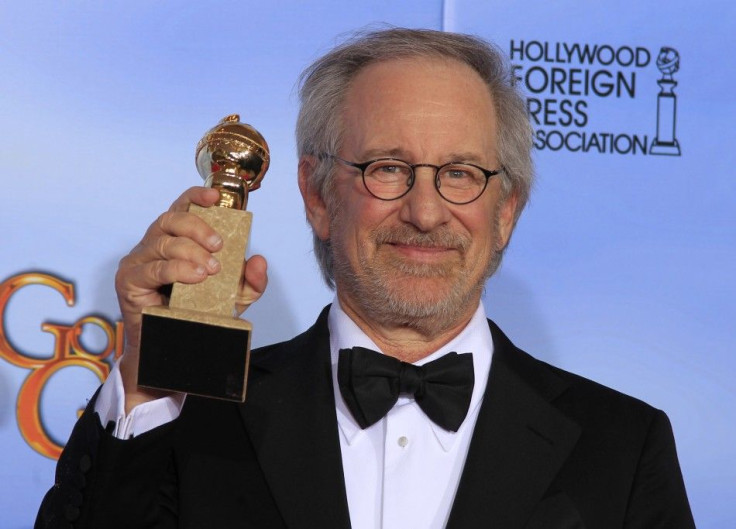Saving Private Khan? Steven Spielberg Plans Film On Kashmir Dispute

Renowned U.S. filmmaker Steven Spielberg is planning to produce a film about the long-standing military dispute in Kashmir, according to Indian and British media reports.
The script for what is bound to be a controversial film has already been completed, Spielberg said, but he has yet to choose a director and cast.
"We have finalized a script,” the 66-year-old director told the Times of India newspaper.
“Part of it will take place on the India-Pakistan border in Kashmir. But we're still trying to figure out the castings, locations and who's going to direct it.”
The proposed film would be jointly produced by Spielberg’s own California-based DreamWorks studio and India’s Reliance Entertainment.
Spielberg, perhaps the most commercially successful movie figure in history with a long list of blockbuster hits over his nearly 40-year career, is in Mumbai, India’s movie capital, to meet with top Indian movie stars and directors, including Bollywood legend Amitabh Bachchan.
Spielberg is coming off the critical success of his latest historical opus, "Lincoln," about the 16th U.S. president, starring Daniel Day Lewis.
However, any movie about a subject as contentious as Kashmir -- which India and Pakistan have long claimed sovereignty over -- is bound to cause controversy, although the actual content of Spielberg’s proposed film is unclear.
Pakistan has a long history of banning foreign films, particularly those made in India. Just last year, Pakistan’s Central Board of Film Censors banned an Indian spy movie called "Agent Vinod" because it made references to Pakistan’s notorious intelligence agency, the Inter-Services Intelligence.
Not surprisingly this year, Pakistan banned Hollywood’s “Zero Dark Thirty,” about the hunt for al-Qaeda chief Osama bin Laden in Pakistan.
Spielberg, who is Jewish, has been the target of boycotts by Arab and Muslim groups in the past.
In December 2010, documents leaked by WikiLeaks revealed that diplomats from countries in the Arab League voted to blacklist Spielberg’s films after he made a $1 million donation to Israel during its 2006 war with Hezbollah in Lebanon.
Spielberg has also been criticized for the negative portrayals of Arabs in his films.
"The depiction of Arabs in ‘Raiders of the Lost Ark’ was very poor, cartoon-like and full of the usual stereotypes," Chris Doyle of the Council for Arab-British Understanding told the Guardian newspaper.
"In a broader context, this applies to so many Hollywood films where Arabs for decades have been ludicrously depicted."
© Copyright IBTimes 2024. All rights reserved.





















